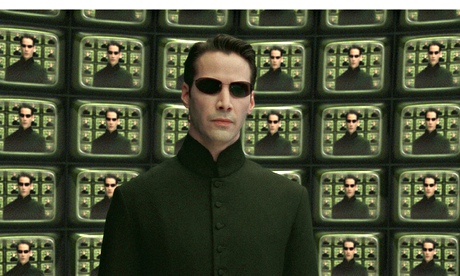
Just published a few days apart, Stieg Larsson sequel The Girl in the Spider’s Web and Jonathan Franzen’s Purity show how far the hacker has come in fiction: a 30-year journey from cult SF, via world-conquering book and movie trilogies, to post-WikiLeaks literary novels in which ageing lords of the Gutenberg Galaxy try to get to grips with techno-crime.
Neuromancer by William Gibson (1984)
The debut novel that coined the term “cyberspace” centres on Case, a disabled data thief who has hit rock bottom but is offered a chance of rehabilitation and redemption by an ambiguous new employer: his ultimate task is to hack past the passwords into a stupendously powerful artificial intelligence (one half of which is called Neuromancer) belonging to a clan of plutocrats.
Hacker by Malorie Blackman (1992)
Rather than a pro cyber-criminal, Blackman’s E Nesbit-style heroine is 13-year-old Vicky, who hacks into a bank’s computer system to find out why it sacked her dad and accused him of embezzling a seven-figure sum.
The Matrix by the Wachowskis (1999)
After starring in the screen version of Gibson’s “Johnny Mnemonic”, Keanu Reeves was a natural choice to lead a seminal film that openly borrows and reworks the cyberpunk pioneer’s concept of the Matrix – now a pseudo-reality fabricated by intelligent machines that Reeves’s Neo and fellow-hacker Trinity seek to penetrate and unravel.
The Jazz by Melissa Scott (2000)
Cyberthriller in which two hackers go on the run together: Tin Lizzy has a murky past but a legit job as designer for The Jazz (an internet art form mixing up fibs and facts), Keyz has stolen a movie studio program he hopes will give his own Jazz efforts more commercial clout.
The Girl with the Dragon Tattoo by Stieg Larsson (2005)
The hacker migrates from SF and YA novels to mainstream crime fiction, and Lisbeth Salander (was she inspired by The Matrix’s Trinity?) is the main reason for the worldwide success of Larsson’s mega-selling posthumous trilogy, which has also generated two film series and - a decade after Lisbeth’s debut – David Lagercrantz’s The Girl in the Spider’s Web
Transmission by Hari Kunzru (2004)
Perhaps the first deployment of a hacker in literary rather than genre fiction, although Kunzru’s Indian hero Arjun is a Silicon Valley programmer who only resorts to cyber-crime (with disastrous global results) in a misguided attempt to regain his job after being fired.
Little Brother by Cory Doctorow (2008)
A politically combative YA cyberpunk novel in which hacker Marcus and other techy teens use their skills to take on the Department of Homeland Security, after its agents detain them on suspicion of responsibility for terrorist attacks in San Francisco.
Reamde by Neal Stephenson (2011)
A vast, elaborate international techno-thriller in which Reamde is a virus used by hackers to cause chaos in a virtual world (both a game and an economy) called T’Rain, notably disabling its payments system.
Amnesia by Peter Carey (2014)
A literary grandee at last deigns to make a hacker one of his protagonists: Felix, a journalist, researches a profile of Gaby, an Australian hacktivist who uses her talents to unlock prison cells and undermine malignant corporations.
Purity by Jonathan Franzen (2015)
Internet-sceptic Franzen swots up on the tech world, too and similarly puts a hacker centre-stage: Pip aka Purity, his heroine, works for the Sunlight Project, a secrets-leaking website run by Andreas, a Julian Assange-like figure who employs hacking as one of the weapons in his feud with former friend Tom.

